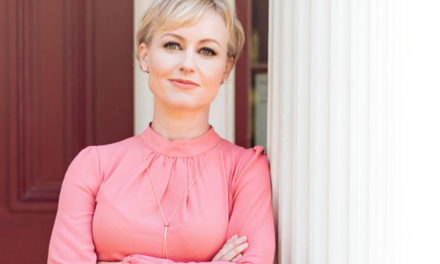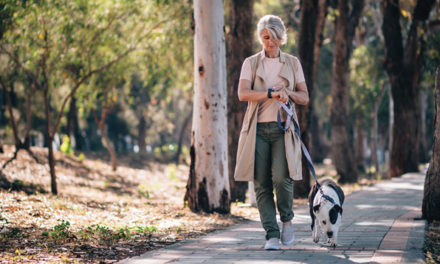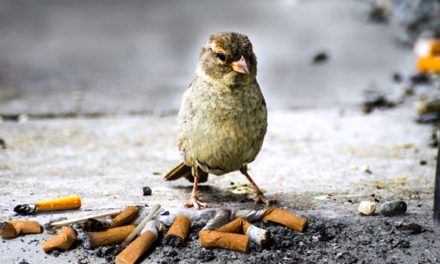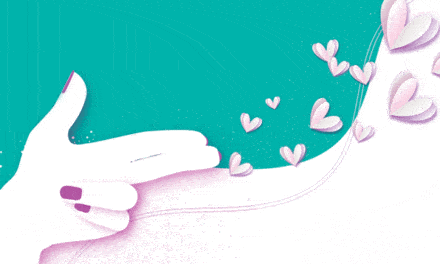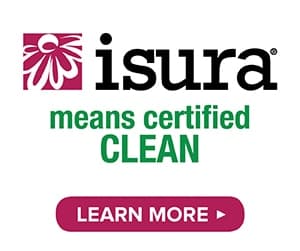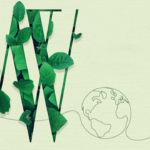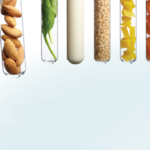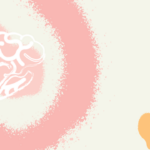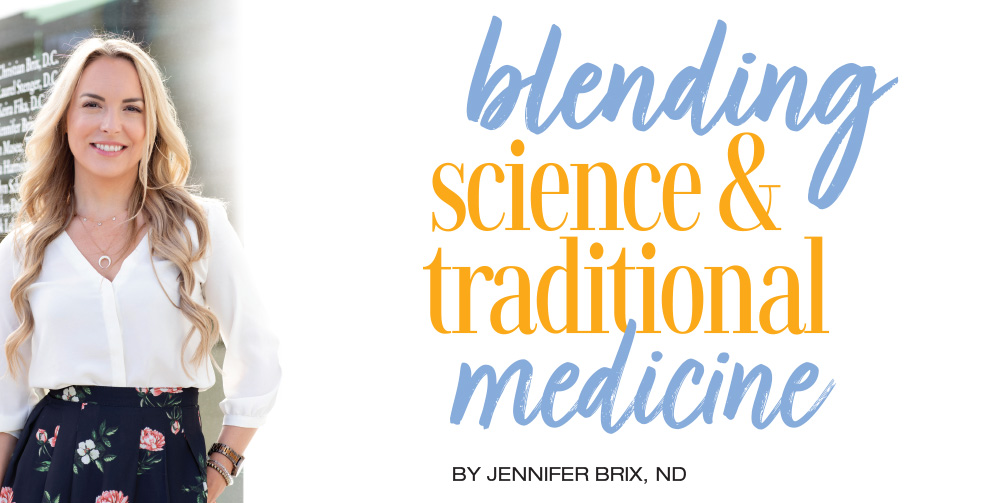
Naturopathic doctor, Jennifer Brix, has a passion to empower her patients to focus on prevention, and to help them make healthy and sustainable choices, so they can minimize their impact on the environment.
As a naturopathic doctor committed to my patients’ health and dedicated to continually learning and growing, you’d think I have a life story in which I had a flashbulb moment. A moment where I said, “Yes, I want to be a naturopathic doctor, and this is my calling,” but this career choice happened by accident.
I was brought up on Vancouver Island, by two modest, hardworking entrepreneurs, and I am blessed to say that I had a childhood free of illness, and a family who made healthy lifestyle choices for me. Growing up, I spent a lot of time with my grandparents on their property, developing a love of nature. I had no siblings to play with, so I wandered around – often barefoot – in the forests and meadows, and by the streams and the ocean. I learned how to listen and observe, and truly experience how everything intricately existed in a balance.
I became fascinated by how things worked in my environment, but also the human body, and I had a hard time dialing into what I wanted to “be.” As a result, I started my academic career in a pre-medicine program at the University of Victoria, knowing this could provide many options. I could be a veterinarian, chiropractor, heart surgeon, or even a marine biologist. I found inspiration in everything from genetics and molecular biology to human anatomy and invertebrate physiology. However, I always had a nagging desire to make a difference in my community, so I began to focus on how I could mesh it all together.
“The greatest threat to our planet is the belief that someone else will save it.”
– Robert Swan, Author
I entered the UVic co-op program, and had my first placement at St. Paul’s Hospital in Vancouver. After eight months, at the age of 18, my work on how immunosuppression works in heart transplants was published in two prestigious medical journals. Being published paved the way for future job placements, and after my fourth work term in Winnipeg at the National Microbiology Lab, my research supported the development of a bacterial meningitis vaccine. My projects were paving the way to work in allopathic medicine.
My Inner Conflict
I found myself working in a cardiology ward, but I was not feeling happy or fulfilled. Plus I never spoke to a patient who could have, or did, benefit from all my years of research. There was a significant disparity in what I was seeing, doing, and feeling. It also tugged at my heartstrings to know my funding was coming from BigPharma, whose beliefs did not pair well with my core values. I wanted to help people more directly and experience their success. Maybe they would share this success with others, helping more people than I could ever dream of.
It wasn’t until my fourth year of university that things truly started to fall into place.
To further amp up my resume for the next stage of school, I began volunteering for a local naturopathic doctor. I had no idea what this type of practitioner was, but something clicked. My job involved taking peer-reviewed clinical research on natural remedies and organizing it into digital files. Although this sounds tedious and ho-hum to most, I suppose this was my flashbulb moment. I spent countless hours learning how supplements such as vitamin C, ashwagandha, magnesium, and licorice root could be used to treat certain diseases, but more importantly, how they were helping people get better. The science was there, but all of the terrible side effects were not. Naturopathic medicine united my passion for health because the research showed that these supplements treated the core cause of disease and was backed by science. My analytical, evidence-based mind now felt alive, filled with passion and purpose.
I always believed that you couldn’t pursue happiness, but rather, you create it yourself. I had found my purpose, finally, and that deep, long-lasting sense of fulfillment allowed that happiness to follow. One day, I will strive to have property, much like my grandparents did, and practise, or at least attempt, biodynamic farming.
An Ounce of Prevention Is Worth a Pound of Cure
Several months later, I began the next chapter in my life’s work at one of two Canadian naturopathic medical schools. Over the next four years, I learned more than I thought possible and I began to practise the tenets of Naturopathic Medicine personally. One that I gravitated towards was Prevention. I knew that wearing a helmet can help prevent hurting your head if you fall off your bicycle and putting leftovers in the fridge helps prevent mold from growing too quickly.
Prevention is everywhere, and we actively practise it. Still, we have stepped away from trusting Prevention when it comes to our health and it is compromised by convenience, popularity, and immediate (but often temporary) gratification. Some may argue it is far too expensive to practise preventive health care, but the toll on our health care system would suggest otherwise. The Canadian Medical Association Journal has plainly stated that Prevention is the key to health system sustainability. Prevention can help make populations healthier, reduce health system strain, and contribute to economic sustainability. But Prevention goes deeper than human health; it extends to our surroundings.
“We may not be living in a sustainable age, but we are living in the age of sustainability.”
– Jeremy L. Caradonna, Author
In the 80s, when I was growing up, Greenpeace was all over the news, many well-known animal species were becoming endangered, and the climate change movement was beginning. In elementary school, I helped start the first “Recycling Club,” and spent countless weekends volunteering at nature sanctuaries and the local SPCA. I later joined LIFEboat Flotilla, which taught me to be proactive and a critical thinker as a young citizen. This week-long discovery on a sailboat along the Pacific Coast explored concepts of global sustainability, marine conservation, ecological diversity, and Native culture. I was lucky to have a notable mentor during this experience, Dr. Jane Goodall. These events culminated in my desire to try to impact at least one person as much as I had been affected in these formative years of my life. And to live more sustainably.
Buy Less, Choose Well
Sustainability by definition is the avoidance of the depletion of natural resources in order to maintain an ecological balance. Currently the global population consumes 2.5 times the resources that the earth can sustainably support. And each year, an estimated one-third of all food produced – equivalent to 1.3 billion tons – ends up rotting in stores or at the homes of consumers, or spoiling due to poor transportation and harvesting practices. To add, the food sector accounts for around 26% of total greenhouse gas emissions, with commercial animal products making up more than half of this.
I am personally not a vegetarian, and I love my morning bone broth for its health benefits, but I do recognize that reducing consumption of animal products can filter down to benefitting Mother Earth. Shifting meals to being more plant based can save resources, and our individual decisions do add up.
What you put into your body extends to supplements. Part of my job is to help my patients navigate this. Not only are potency, source, and scientific evidence paramount to a great quality supplement, the transparency of the manufacturer and words like LEED, FairTrade, B Corp certified, non-GMO, and certified organic are things to think about. But it can get overwhelming, fast.
My motto is, buy less, and choose well. I aim to be a locavore as much as I can, continuously create space for nature, and always give back. My love of life informs my travels, where I try to volunteer whenever possible. I have had enriching experiences trekking across Kenya for African elephant awareness, providing medical support for children in Nicaragua, building homes for families in Mexico City, and caring for abused and neglected animals in Ecuador. And while at home in Kelowna, I am a member of the Yacht Club Environmental Committee, which recently received Clean Marine certification, successfully eliminated all plastic straws, and continues to be a steward of the lake.
Giving back feels good. Perhaps it’s another preventative health biohack. But giving is truly good for our health and a wide range of research has linked different forms of generosity to better health.
“We cannot solve our problems with the same thinking we used when we created them.”
– Albert Einstein, Physicist
Fast forward 20 years from the days of gene sequencing and heart transplanting, and I am happily practising sustainable medicine. As a naturopathic doctor, I have a general family practice with a focus on hormonal, digestive, and brain health. I am passionate about addressing the root cause of imbalance, blending scientific knowledge with traditional medicines. In following what Hippocrates coined, let food be thy medicine, food is always part of my treatment plans. I aim to teach my patients that making good food choices matters. We must return to the basics of eating what Earth provides – food that is grown and raised, rather than manufactured and processed. This has pushed me to become part owner of a national bone broth company, which I helped transform into an organic, sustainably packaged, environmentally conscious, real food. We are currently striving to implement this functional food into meal plans at local hospitals, coincidentally where my journey began.
On a typical day, you’ll see me travelling to my clinic, Brix Wellness, on my scooter with a travel mug full of warm bone broth. I can’t wait to get to the clinic where I work alongside my chiropractor husband and a team of practitioners who have more fun than any other clinic I’ve experienced!
I always believed that you couldn’t pursue happiness, but rather, you create it yourself. I had found my purpose, finally, and that deep, long-lasting sense of fulfillment allowed that happiness to follow.
Living with an attitude of prevention and making sustainable choices is laudable and now more practicable than ever.
Here are a few small steps you can try for yourself and the planet:


